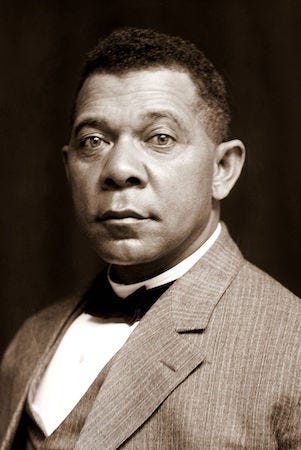There is an unfortunate tendency in the UK to import social movements from the US, where society, and history, is very different. The US domination of entertainment and social media across the world leads to malign as well as beneficial changes in culture.
Amongst these undesirable imports has been the substitution of identity politics for community politics. Instead of everyone uniting for the common good, this egocentric philosophy incites competitive victimhood amongst arbitrary groupings, focussing on what divides society (or can be made to divide it) rather than on what unites us. The foolish assumption is made that all people who share a particular characteristic are the same, and therefore have the same problems, needs and complaints.
The secondary, even more insidious, message is that non-members of the said arbitrary group have historically cherished enmity to its members and continue to discriminate against them today. The much more likely reality in the UK is that, since the grouping is arbitrary, nobody even considered these people a group, let alone a community, until their victimhood was proclaimed and forced upon the general consciousness. I am not suggesting that individuals were not hard done by, but we had long ago emerged from the era where discrimination against a whole race, sex, religion, or whatever, was considered acceptable in society.
I cannot speak to the relevance of such thinking to The USA, though it seems to me that it can hardly be constructive anywhere. However, having crossed the Atlantic and found themselves largely irrelevant to British society, these movements have focussed on exaggerating any problems that can be found in order to justify their own continued existence and the celebrity afforded to their noisy leaders.
Moreover, by taking the sort of protest action that creates maximum annoyance and irritation to the uninvolved public, they are succeeding in creating, by way of backlash, precisely the problems against which they supposedly protest. They then seize gleefully upon the supposed “proof” of their words thereby offered.
It may be that in the US, the problem of identity politics has, for the time being at least, been subsumed into a more communal resistance to the eccentric, not to mention misguided, behaviour of the present administration.
But sadly, the UK is lagging behind the curve again. Particularly in the public sector, insidious identity politics still prevails, and it has led to discrimination against the holders of perfectly legitimate but “old-fashioned” views, often the views held by the majority of the population, on the grounds that failure to adopt the modern, fashionable identity-based dogma constitutes discrimination. Criticism of propaganda promoting a particular identity, even at the expense of others, is considered a form of phobia rather than a rational response to excessive self-interest.
Repeated court defeats for authorities and other employers trying to insist on the moral rectitude of this reverse discrimination has so far not succeeded in persuading other similar practitioners that their stance is itself discriminatory, and constitutes constructive dismissal of those who lose their jobs or are forced out of their positions by ostracism.
As far as “Black Lives Matter” is concerned, I cannot recall any UK commentator having suggested that any alternative was the case. When the George Floyd furore crossed the Atlantic, for inexplicable reasons, and led to large demonstrations and some vandalism, we used to get questions from Americans on social media such as, “What do you call black people in the UK?” The best response I saw to all this, and one that encapsulates the point I am trying to make here, was very brief and to the point. “Well, the one who works with me, I call Dave, because that’s his name.”
I am reminded that, over a century ago, Booker T. Washington pointed out what one might today regard as the beginnings of the race relations industry. There were people, he said, who made it their business to complain about problems, but did not actually want them solved, because the problems provided them with status and income as protesters. How right he was.




